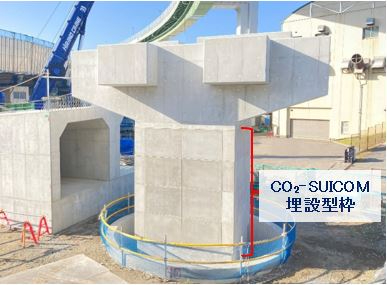J-STORIES ー 若年層の増加や、豊富な資源など大きな成長力を秘めたアフリカは21世紀最大のフロンティアと言われている。しかしイノベーションに欠かせない情報通信インフラの整備は他地域に比べ大幅に遅れており、アフリカ全体でのインターネット接続率は2023年の統計で4割に満たない。特に、人口の60%(およそ7億人)が集中する地方の農村部は、採算性の観点から既存の通信網から取り残されている。
こうした中、そのような途上国の農村部でインターネットの常時接続を実現し、経済面・情報面の格差の縮小を目指す日本のベンチャー企業がある。農村にデジタルサービスの利用環境を広げて、職業訓練動画を視聴したり、遠隔医療を受けたり、農作物の販売マッチングを行うなどなどさまざまな形で、農村部にいながらリモートで先進国やアフリカ都市部のサービスや仕事を得ることができる仕組みを作り、農村住民の生活や収入の向上に貢献するという取り組みだ。
このベンチャー企業は、バックパッカーとして世界各国を回り、ビジネスでも海外の新規を多く手掛けてきた大場カルロスさんが2021年10月に設立したDots for(東京都港区)。西アフリカのベナンで事業を開始、セネガルも含め、創業から約1年で50以上の村に対するインフラの構築を行った。その後も順調に事業の拡大を続けており、インターネットの常時接続を実現した村は、2024年2月時点で、150に達している。
採算性が難しい農村でのインターネット整備をビジネスとして成立させる為に同社が採用したのが、従来の基地局を中心としたスター側ネットワークではなく、村の中に「メッシュネットワーク技術」を搭載した無線WiFiルーターを複数設置する「分散型通信」システムだ。一般的にメッシュネットワークは室内のWiFiの届きにくい部屋や、被災地や野外イベントに一時的なネットワーク環境を設けるためなどに使用される。これを農村に導入することで、無線ネットワークインフラをきわめて安いコストで構築できるという。

スマートフォンを通じて無線ネットワークに接続した住民は、同じく村内に設置されたサーバーに保管されたデジタルコンテンツやサービスにアクセスできるようになった。「農村で生まれたから不利益を被っているという現状」(大場さん)が大きく変わるきっかけになりつつある。



同社がめざしているのは、「2030年までに西アフリカの地方部に住む2億人がインターネットに繋がってその利便を享受できる社会を作る」こと。日本政府からも、同社の事業の実現性や現地の生活を変える可能性を認められており、2021年11月から行ってきたベナンでの事業と2022年9月から着手しているセネガルの事業で、経済産業省からの支援を受けた。
同社は2023年9月に複数のベンチャー投資ファンドおよび、エンジェル投資家から総額1億円の資金調達に成功。また同年11月には総務省の主催する「ICT スタートアップリーグ」への採択が決定するなど、順調に事業の拡大を続けている。
事業を広めるにあたって大場さんが大きな課題と感じていることは、「各村にどれだけ入り込めるか」だ。言語や文化の違いが壁になったり、時として現地民でない「よそ者」は話も聞いてもらえないこともある。同社では現地のマネージャーやスタッフはその地域の出身者を登用するなど、地域の雇用の拡大に貢献することで、現地の信頼獲得にも力を入れている。
同社によると2024年2月現在までに、ベナンとセネガルの両国で31名の現地スタッフがインターネット構築の業務にあたっている。

大場さんはJ-STORIESの取材に対し、「農村の人の生活の質を上げること」が最終的な目標だと話す。収入を上げる、手に職をつける、教育を受け、よりよい将来を手に入れる、といった生活のステップアップを実現するには、まずは必要なインフラを広げることが第一歩になる、と大場さんは言う。同社では、インフラを広げたうえで、情報を手に入れるためのデジタルプラットホームの構築にも取り組んでいく方針だ。
記事:嵯峨崎文香 編集:北松克朗
アップデート編集:一色崇典
トップ写真:Dots for 提供
本記事の英語版は、こちらからご覧になれます
この記事に関するお問い合わせは、jstories@pacificbridge.jp にお寄せください。
***










![[PODCAST] 日本新科技助攻不孕症治療(Part4)](https://storage.googleapis.com/jstories-cms.appspot.com/images/1768443226894unnamed-5_bigthumbnail.jpg)








![[PODCAST] 如何打造成功的新創企業社群(第2集)](https://storage.googleapis.com/jstories-cms.appspot.com/images/1748493203370business-man-holding-light-bulb-social-network-2024-10-31-22-37-36-utc_smallthumbnail.jpg)



アフリカ農村部にデジタルの種を蒔く:日本ベンチャーによるインターネット普及計画
アフリカ農村部にデジタルの種を蒔く:日本ベンチャーによるインターネット普及計画
アフリカ農村部にデジタルの種を蒔く:日本ベンチャーによるインターネット普及計画
アフリカ農村部にデジタルの種を蒔く:日本ベンチャーによるインターネット普及計画
アフリカ農村部にデジタルの種を蒔く:日本ベンチャーによるインターネット普及計画